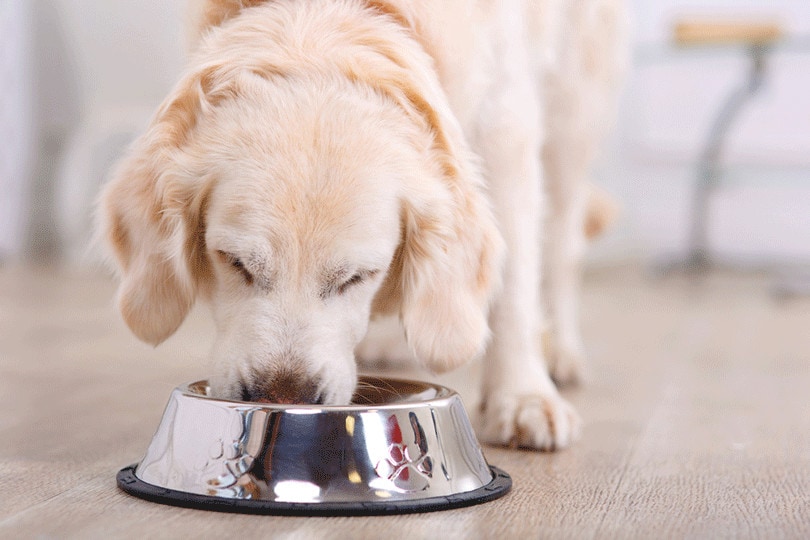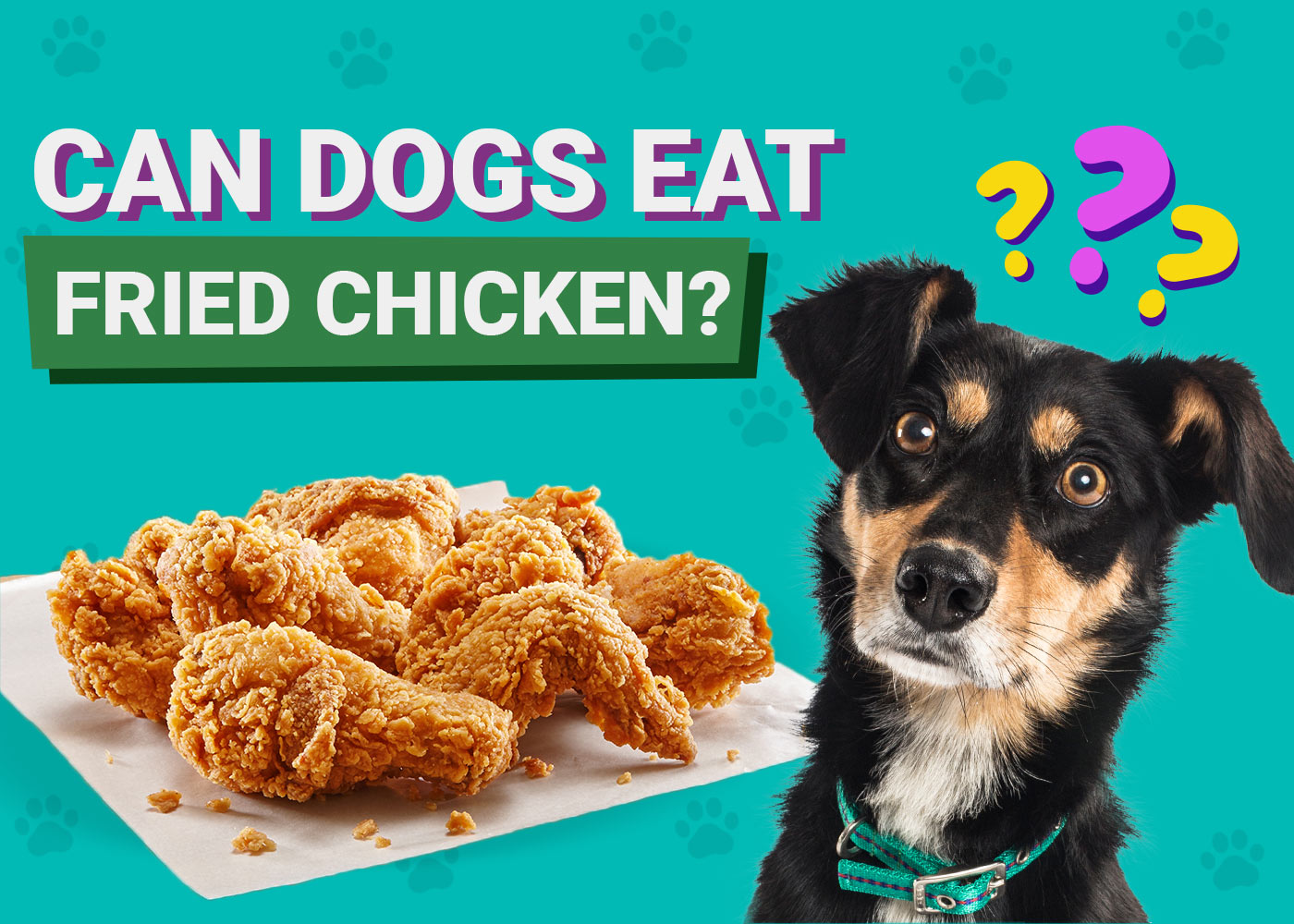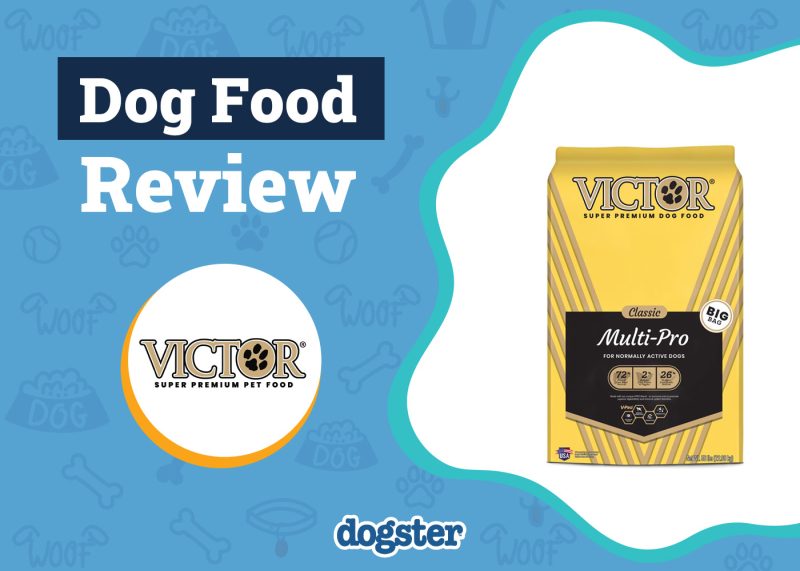The hot pop of frying chicken sends dogs flying from the sofa just as easily as a tantalizing takeout box from your favorite chicken chain. It may be finger-licking good, but is it safe and healthy for your dog? Unfortunately, high amounts of grease and oils can predispose your dog to pancreatitis and obesity, especially over time. Fried chicken definitely isn’t a healthy food. An occasional nibble probably won’t hurt them, though, as long as it doesn’t contain bones or harmful seasonings such as garlic powder.

Is Fried Chicken Safe for Dogs?

Chicken is a main ingredient in many dog foods. As a lean, relatively inexpensive protein, it’s a popular choice because it’s easy to source and dogs love it. Fried chicken, on the other hand, is loaded with greasy oils and fats.
Eating too many saturated fats is linked to the development of pancreatitis in dogs. Pancreatitis occurs when the pancreas is inflamed and releases excessive digestive enzymes, causing diarrhea, vomiting, and other adverse reactions. In severe cases, pancreatitis can lead to liver damage and even death. Pancreatitis can happen suddenly or over time. A well-balanced diet is key to prevent pancreatitis, but AAFCO-certified dog foods are already balanced. This means that anything extra that your dog eats should be counted as a treat, not as their regular food.
In addition to the grease and fats, the breading on fried chicken often contains harmful seasonings such as garlic and onion powder. Both garlic and onion are toxic to dogs, like most plants in the Allium genus. Early signs of toxicity include gastrointestinal distress such as vomiting and diarrhea. A compound called N-propyl disulfide is responsible for Allium toxicity. N-propyl disulfide damages red blood cells in dogs, which leads to anemia and can cause significant illness.
Unfortunately, seasonings such as garlic powder and minced onion are even more potent than the plants themselves since they’re in a concentrated form. For this reason, it’s important to avoid giving your dog food that has been seasoned with garlic or onion. If your dog has accidentally eaten some fried chicken, we recommend you contact a veterinarian for advice on next steps.
If you need to speak with a vet but can't get to one, head over to PangoVet. It's our online service where you can talk to a vet online and get the advice you need for your pet — all at an affordable price!

What About Heart Disease?
Fried chicken is often considered a vice in human diets because of the link to heart disease. Surprisingly, some sources claim that dogs and cats aren’t at risk of developing the same type of heart disease that humans sometimes develop from eating too many saturated fats. In fact, canines were built to process more saturated fats than humans because of the large portions of meat in their diet. Even so, you should avoid giving fried food to your dogs since it can predispose them to other diseases like pancreatitis.
What Can I Feed Them Instead?
If your dog is eating an AAFCO-certified diet, they should already be receiving all of the nutrients they need. Your veterinarian can tell you if they might benefit from other vitamins or supplements, and of course, you already feed them treats.
Given how much they already receive, you shouldn’t feed your dog much table food, if any. Not only can table food contain ingredients that are toxic to dogs, but they’re also more likely to have high amounts of carbohydrates, fats, and sugar, which contribute to obesity.
The extra weight isn’t just fluff for our furry friends. Their bodies are already so small that even a couple of pounds can put undue stress on their joints and make them feel sluggish, which slows them down and perpetuates the problem if they don’t exercise. This is why other diseases such as arthritis are associated with obesity. One study even shows that obesity alone may shorten your dog’s overall life expectancy by 2 years.
If you want to give your dog something a little extra, a bite of plain, cooked chicken with no bones or seasonings is your safest bet.


Conclusion
Fried chicken isn’t necessarily toxic to dogs unless it contains harmful seasonings like garlic or onion-derived ingredients. However, the grease and oils can increase their chance of developing diseases like obesity and pancreatitis if eaten in large amounts over time. The bones in fried chicken are blatantly dangerous since they’re cooked and can easily splinter in their GI tract. If you decide to give your dog fried chicken, just pinch them off a piece of the meat without any breading, bones, or seasoning. Opting to give them a bite of plain, boiled chicken or a dog treat is even better.
Featured Image Credit: Fierman Much, Shutterstock




















